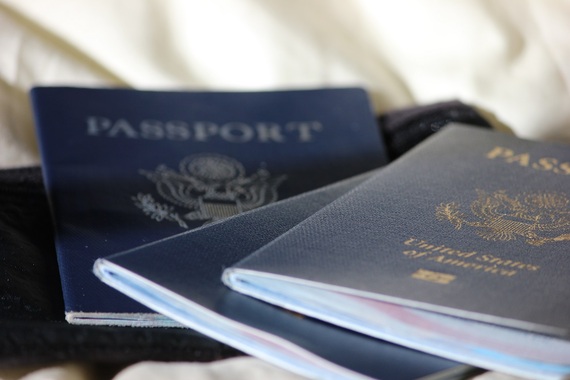Adopting? Proceed reverently, says the Mean Minister*
I remember most the heartache. Having worked in child welfare as a social work intern, I saw how parenting, termination of parental rights, and the process of adoption could go all go terribly wrong. Parental rights were ended, while emotional ties remained strong. More than once I sat with a prisoner as she recorded her final message to her child, as her parental rights were legally severed. This experience opened my eyes to the complexity of adoption.
Years later, my husband and I filed paperwork to adopt a child from another country. Interviewed in 2009 about our adoption journey, I told the reporter I wanted to convey that it was a hard process, not for the faint of heart. I was surprised, actually, how difficult the adoption process proved to be. I wrote about our journey in the Chicago Tribune, and a woman contacted me, told me the piece I wrote confirmed that she should adopt. At the time? I was elated. Years later, I pray it all went well for them. I pray it was the right choice for all of them, that the child was blessed by that adoption.
We were and are blessed beyond measure by adoption, words cannot express. I want to convey that our daughter is our daughter. She is light from stars, she's my daughter and I'm her mother. For me, this is a truth that goes to my marrow. It's also true she has a birth mother and a birth father, and I wish I could tell them how amazing our child is, because while she's my daughter, she's their daughter too.
Portuguese speakers have a word, saudade, which has been called the hardest word to translate into English. My Brazilian friends say it means a longing for what's been lost, a love that's lost, a homesickness. Likewise, the pain of a mother with a child lost to her, in any way, including by adoption, is untranslatable. Love is too big for words, so too is that sort of loss. Those who are responsible for these children coming into being often have no idea who or what they become. Heartbreaking is not a big enough word either.
I say this, while also wanting to make it very clear that international adoption is not for everyone, and faith groups do well to heed this advice: Adoption is not for everyone. Do not pressure people to adopt, do not urge people to adopt without giving them support. Adoption has to be a calling, not entered into lightly, or from the language used for weddings in the 1700's, adoption "therefore is not by any to be entered into unadvisedly or lightly; but reverently, discreetly, advisedly, soberly" I know countless great international adoption stories, and I know only a few that imploded.
Dan Rather's investigative journalism in Dan Rather Presents: Unwanted in America-The Shameful Side of International Adoption on AXS-TV is grim. It's everything I both know to be true, and can't stand contemplating, regarding international adoption. It's international adoption gone bad, writ horrific across the computer or television screen. It'll make you squirm, there'll be weeping and gnashing of teeth as you watch. This program points to the need for comprehensive adoption reform, for countless reasons, not least of which to protect children who were adopted internationally, and brought to the United States. Rather's program highlights serious cracks in the international adoption process, and the trauma it causes children caught in the horrific crevasse created when a child is not integrated into a family here, or there.
I remember watching "Made in China, the story of adopted Chinese children in Canada, and wondering what the kids would continue to say, as they grew older, about their adoptions. Now, there's a site that features the voices of adoptees, as they write about adoption "from a place of empowerment and peace." They #flipthescript on adoption, and give us the voice from the inside, they tell what it feels like to be an adoptee: the good, the bad, the ugly, the truth. Often, too, the truth hurts. On Twitter, you'll find #adoptionproblems are heartbreaking stories, and very real.
I welcome the on-going dialogue about adoption, with hope it can lead to better care and protections for children worldwide. I pray for understanding and grace as we all continue this conversation.
Post International Adoption:
http://travel.state.gov/content/adoptionsabroad/en/adoption-process/how-to-adopt/post-adoption.html
Lost Daughters: Where adoptees write about adoption from a place of empowerment and peace and they include these adoption resources, among others:
The American Adoption Congress
Concerned United Birthparents
Adoption Policy And Reform Collaborative
*Mean, because I care

